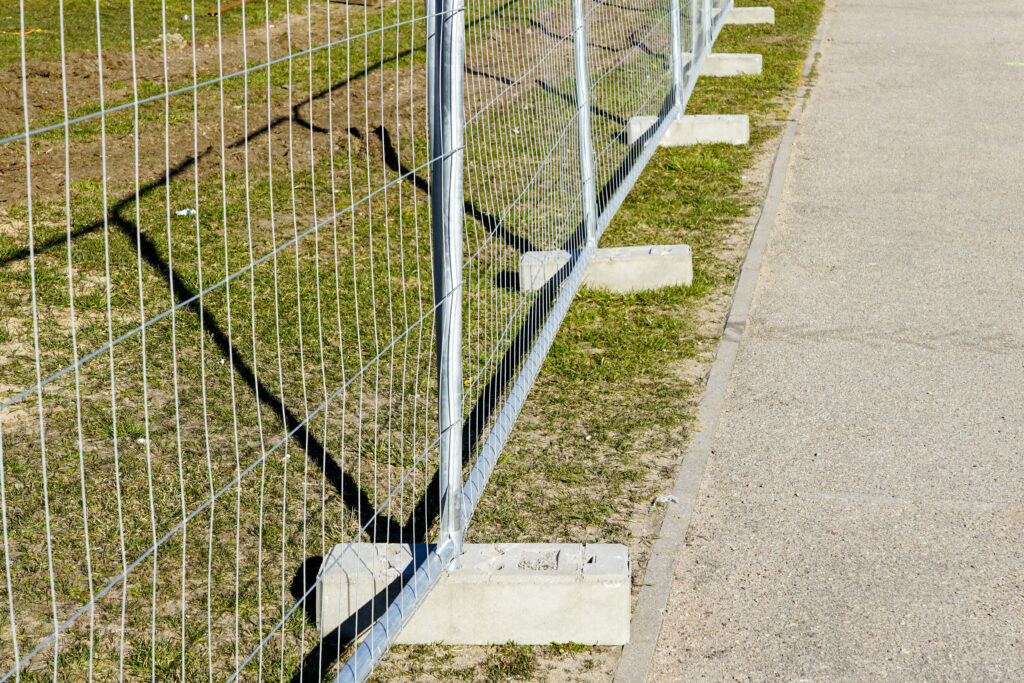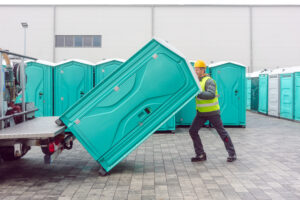When doing construction in New Jersey, you have to prioritize safety. You could be doing a commercial build or a home renovation. You may also be conducting a large-scale infrastructure project. Regardless of the exact undertaking, safety is of utmost importance.
One way to ensure this is to install temporary fencing. This barrier controls access and prevents unauthorized entry. With it, you are also able to minimize the risk of accidents and theft. Additionally, it safeguards the public from potential hazards.
When it’s time to get temporary fencing, you need to be well aware of the requirements and guidelines that govern its use. This article looks at exactly that.
Why is Temporary Fencing Essential for Construction Sites?

Temporary Fence Can Provide The Security You Need
It helps ensure the safety of both workers and the public. In addition to this, it prevents unauthorized access and minimizes the risk of accidents. With a temporary fence, you also get to enjoy security for your valuable equipment and materials. This is from potential theft or vandalism.
Additionally, it helps ensure compliance with New Jersey safety regulations. This protects you from potential legal issues and fines.
Apart from physical safety, it’s also a visual sign that a site is active. This goes a long way in reducing liability in case of accidents. Having a temporary fence also shows that you are really committed to safety and compliance.
New Jersey Requirements for Temporary Fencing
There are specific rules and regulations that you need to follow. These requirements help ensure your fence is implemented in a secure and effective manner. This part of the article looks at exactly that.
Minimum Height Standards
Your fence has to meet certain set height standards. The importance of doing this is to ensure maximum safety and security. Barriers should be at least 6 feet tall. This makes them quite difficult to climb or bypass. It also provides a clear physical boundary between the public and potentially hazardous zones.
With this minimum height, you are able to discourage trespassing. You are also able to protect your workers from any construction-related risks. It’s also wise to say that passersby are also well protected.
It’s crucial that you adhere to this height requirement. This is because it’s the only way to maintain a secure and code-compliant job site.
Durable and Stable Materials
Using durable and stable materials is non-negotiable. In fact, it’s the only way to ensure your fence can withstand varying weather conditions and is able to resist tampering. It also means the barrier will stay anchored throughout the duration of the project.
Some materials you should consider using include chain-link and welded wire. You will also benefit from implementing heavy-duty plastic panels. These can be reinforced with steel bases or sandbags for extra stability.
With such materials, you get to enjoy long-term performance. You are also able to prevent collapse or unauthorized access. This goes a long way in preventing any potential safety violations.
Access Control and Gates
These components help maintain the security of your site. They do this by regulating the movement of personnel and vehicles. Gates need to be locked when not in use. This prevents the issue of unauthorized entry.
With effective access control, you are able to maintain order on the site. This ensures that only qualified individuals are working. This is especially important for hazardous work zones.
Clearly designated access points support better oversight and accountability. This is because they make it easier to track who comes in and out. This can be quite useful in large construction projects.
Strong access control is a smart management practice that you should definitely consider. With it, you ensure protection for both workers and property.
Visibility and Signage
Having this helps to alert the public and workers of potential hazards. Signage should be made out of high-visibility materials. Some great examples here include bright-colored mesh or reflective strips. Such options enhance visibility during both day and night.
Clear signage has to be posted at key access points. It should indicate a warning like “Authorized Access Only”. Such signs help to reduce chances of unauthorized entry.
Temporary fencing does a great job of maintaining safety and compliance on construction sites across New Jersey. It protects the public from potential hazards. It also prevents unauthorized access. In addition to this, it secures valuable equipment. In short, with the right fencing, you ensure safety for everyone involved.
When ready to get your temporary fence in New Jersey, consider working with Go Pro Waste. We give you the much-needed peace of mind. This is because you will know that your site is safe and secure.




